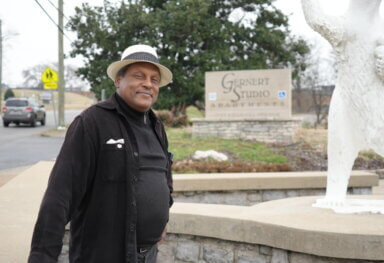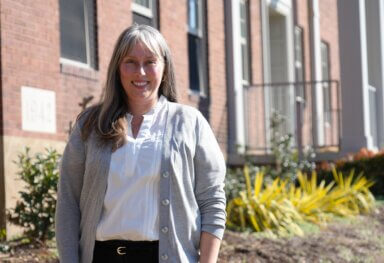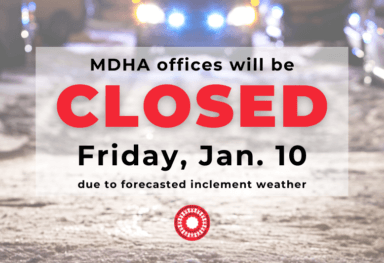The Metropolitan Development and Housing Agency has released its findings from Nashville’s 2017 Point-in-Time (PIT) Count, an annual count of sheltered and unsheltered homeless persons. The total number of homeless persons counted on the night of the count was 2,337, a slight decrease from 2016. The count also documented a 39 percent decrease in the number of persons experiencing chronic homelessness. There appears to be two likely causes for the drop: Improved opportunities and systems to house the chronically homeless, and a stricter “chronic” definition and standard by the U.S. Department of Housing and Urban Development (HUD).
“While I am glad to see the numbers moving in the right direction, we still have more work to do as a community to ensure that all Nashvillians have access to adequate shelter and affordable housing,” said Mayor Megan Barry. “This year, we need to align every resource to allow the unhoused to find a place to call home. We are increasing funding for homelessness services and outreach, while also investing more money in affordable housing initiatives.”
More than 100 volunteers from 24 different agencies and universities, including Mayor Megan Barry, took part in this year’s count. The temperature dropped to 34 degrees during the count, which was held on the evening of January 26 and the early morning hours of January 27. No warming shelters were opened on the night of the count, and the cold weather plan was not activated.
“The annual count is a reminder of why we do the work we do, and I’m grateful to my staff and all of the volunteers who participate each year,” said MDHA Executive Director Jim Harbison. “The information we are able to gather on a single night allows us to better direct our efforts to reduce homelessness in our city.”
HUD requires that Continuums of Care conduct an annual count of homeless persons who are sheltered in emergency shelter, transitional housing, and Safe Havens on a single night during the last 10 days of January. The PIT count numbers are reported to HUD in May.
Here’s What We’re Doing/We’ve Done:
With the support of Mayor Megan Barry, MDHA implemented a new incentive program to encourage more Davidson County owners/landlords to rent their units to homeless Veterans who have been determined eligible for rental assistance under the MDHA Veterans Affairs Supportive Housing (VASH) program. Funded by the Metropolitan Government of Nashville and Davidson County, participating landlords will be eligible for a $l,000 lease signing bonus and eligibility for payment of unpaid rent or damages after a VASH participant moves from a unit. These incentives apply to any new Housing Assistance Payments (HAP) contracts after Feb. 1, 2017.
Metro Government is working with private partners to increase coordination around homelessness in the downtown area that will integrate a social services model moving away from an enforcement-only approach toward a partnership approach. Since 2013, the Nashville community has increased collaboration among 30+ partners and, by leveraging existing resources, has been able to increase the housing placement rate for people experiencing chronic homelessness from an average of about 19 people a month (prior to June 2013) to 54 people a month in 2016.
Access to services is often hindered by a lack of transportation. MTA is exploring a partnership with the Metropolitan Homelessness Commission to provide annual bus passes at no cost to people who are at risk of or are experiencing chronic homelessness. To be eligible, bus pass recipients will have to actively work with a community housing navigator, which work at nonprofit partner organizations.
Staff at the Metropolitan Homelessness Commission is working with community partners to design a Coordinated Entry System (CES) that standardizes the way individuals and families at risk of homelessness or experiencing homelessness access are assessed for and referred to the housing and services that they need for housing stability. An effective CES prioritizes assistance based on vulnerability and severity of service needs, as well as length of homelessness, to ensure that people who need assistance the most can receive it in a timely manner. Coordinated entry processes also provide information about service needs and gaps to help communities plan their assistance and identify needed resources.
Here’s How You Can Help:
Volunteer with a community partner who serves people experiencing homelessness. You can go through a partner organizations list at howsnashville.org/partners.
Donate items such as water, sunscreens, new underwear, socks, non-perishable food items, to help people experiencing homelessness. There is a great need for water during summer months. Contact the Metro outreach team by emailing troy.jenkins@nashville.gov or sally.besuden@nashville.gov to find out where to drop off donations.
Consider a financial contribution to pay for move-in costs including first month rent, security and utility deposits. How’s Nashville assists people with up to $1,000 in move-in costs per household and are in urgent need to replenish the community’s fund. Donations are tax-deductible. For more information, visit howsnashville.org or email judith.tackett@nashville.gov.
MDHA needs landlords willing to accept Section 8 Vouchers. This program provides low-income individuals and families an opportunity to find affordable housing in the private market. Currently, there are 993 landlords who accept the more than 7,000 vouchers administered by MDHA, but the number of such landlords has been declining. If you are a landlord and would like more information about the program, please email section8@nashville-mdha.org.



